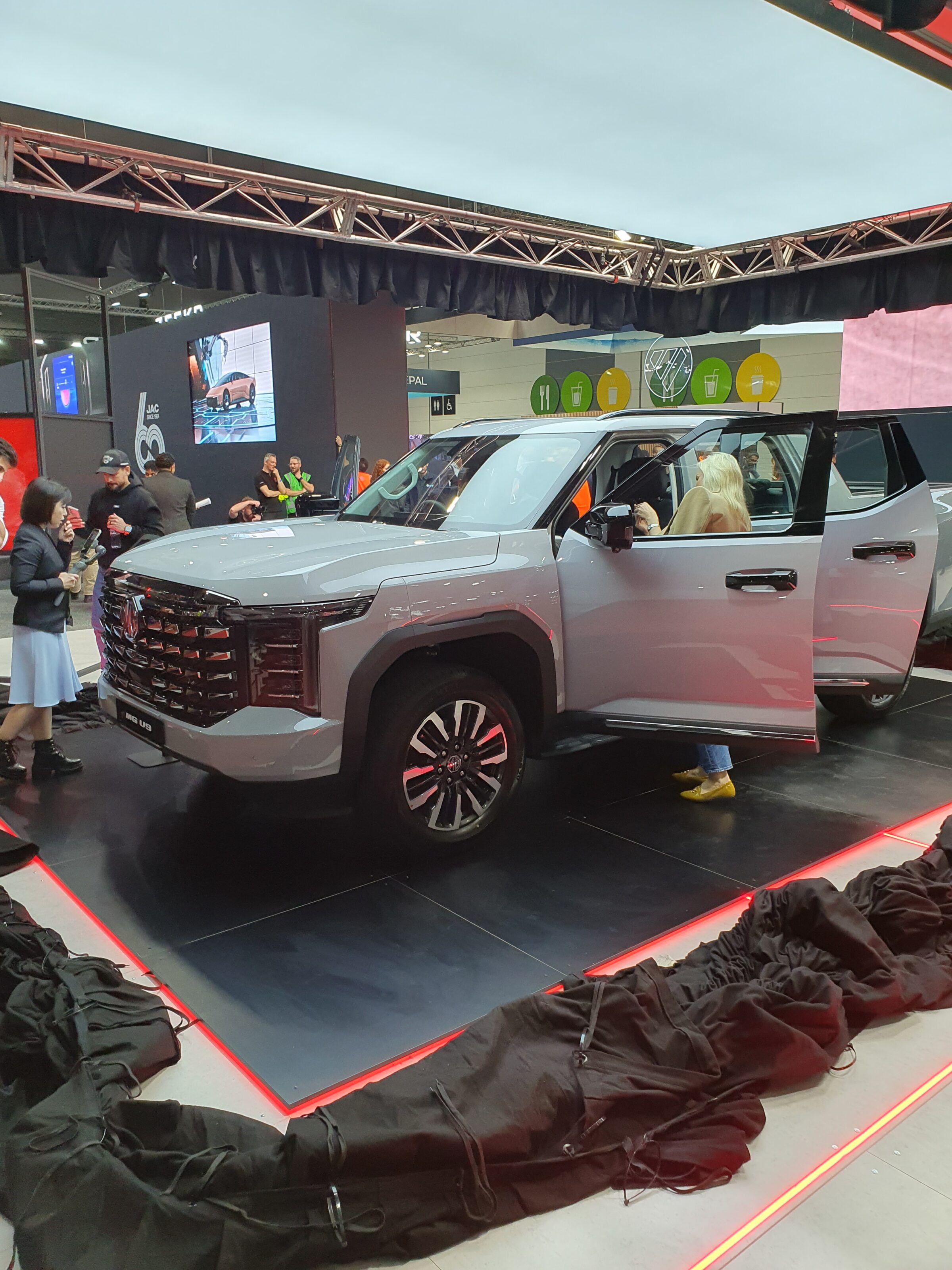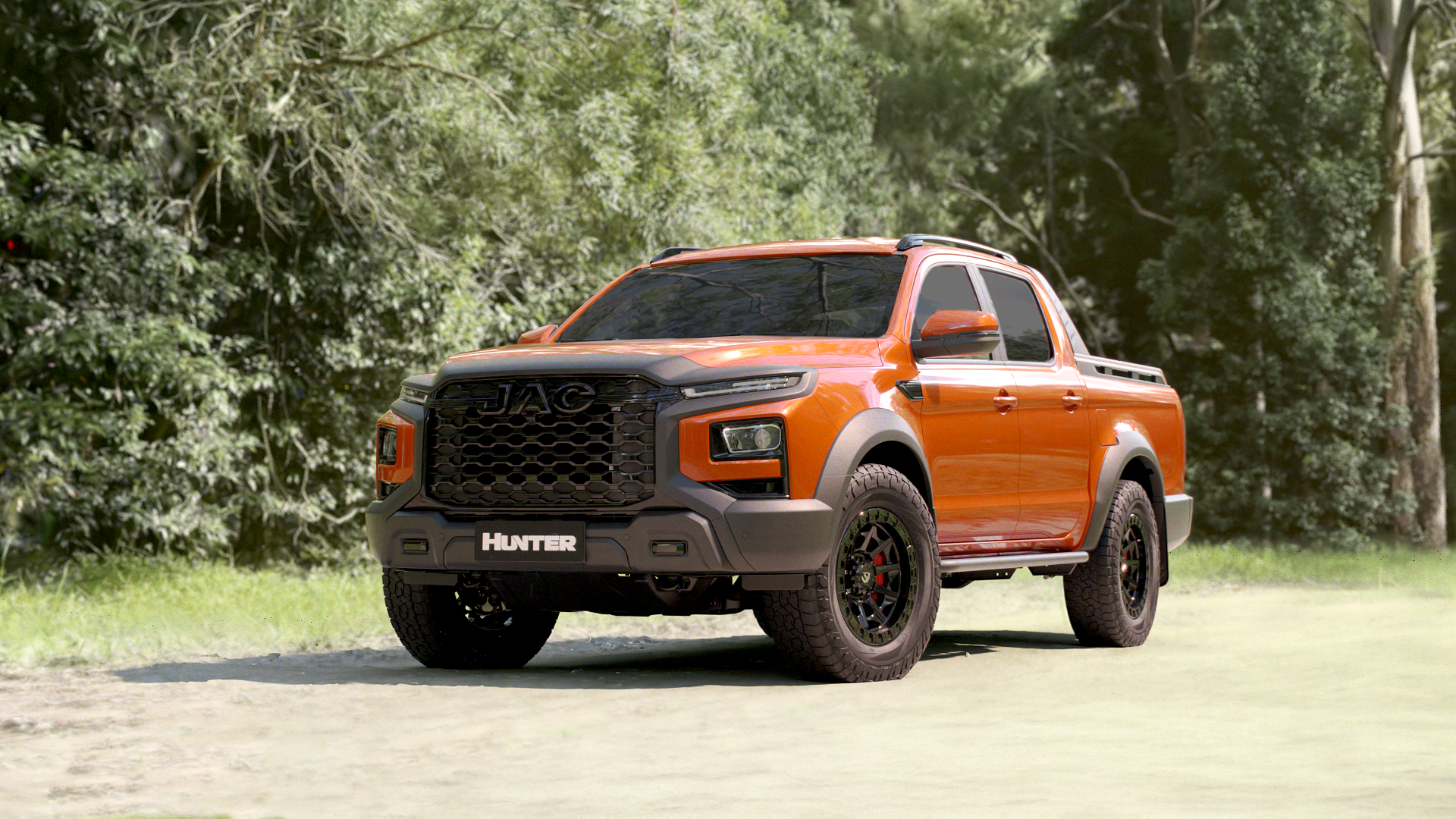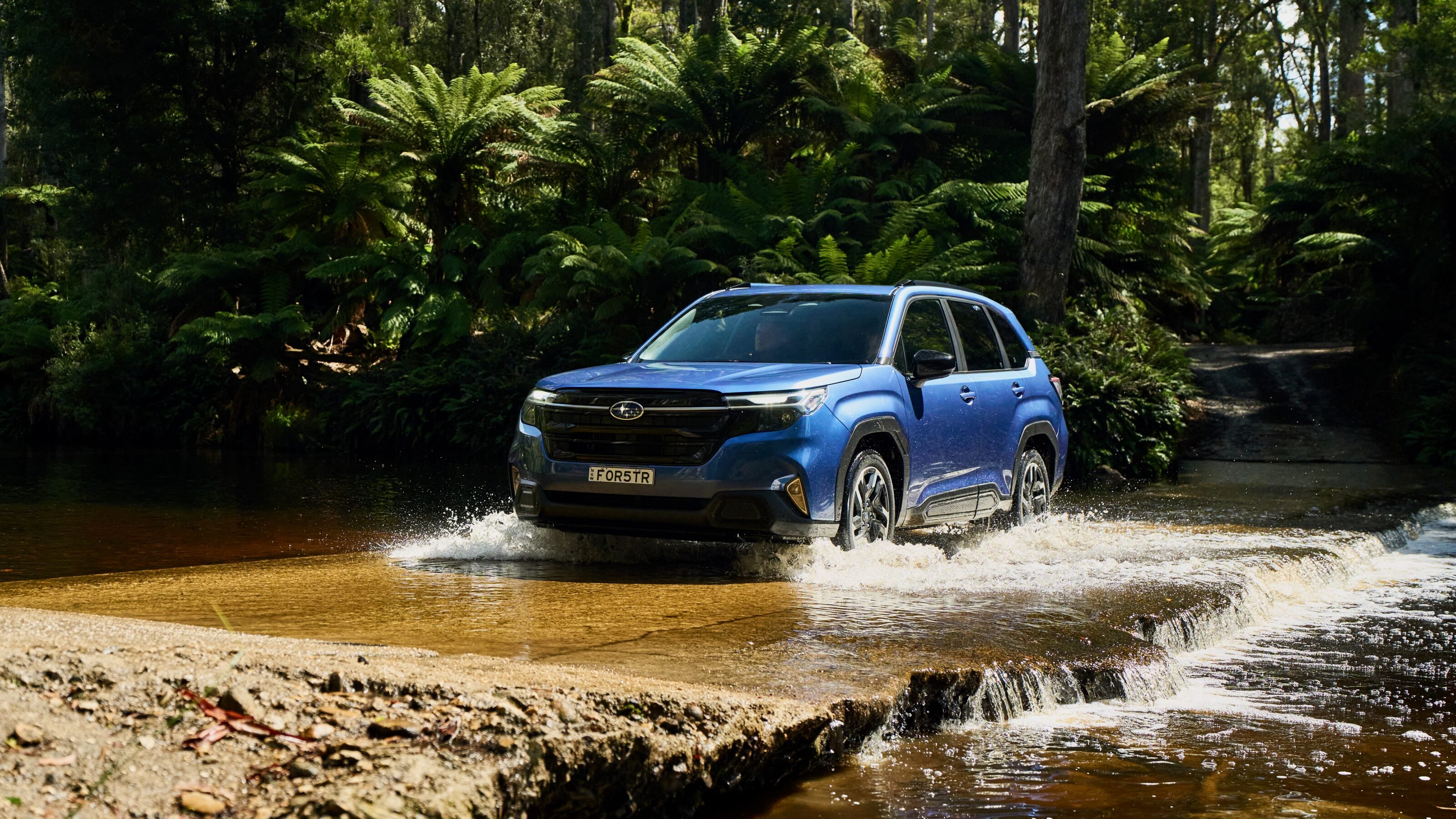
The petrol and diesel engines of today will become relics of the past by the middle of this century, according to the CEO of German tyre and technology giant Continental.
Speaking at the company’s biennial TechShow near its Hanover headquarters, Continental chairman Dr. Elmar Degenhart said the coming decades would see significant upheaval in the automotive industry, as the adoption of electrified powertrains rapidly gained pace, driven largely by regulation.
“We predict that combustion technology will phase out around 2045,” Dr. Degenhart said.
“Regulations will be so tough that combustion technology will no longer be affordable around 2040. That means around 2030 the last generation of combustion engines will go into production, and that means the technology that will hit the market at the beginning of 2030 will start to be developed around 2025.”
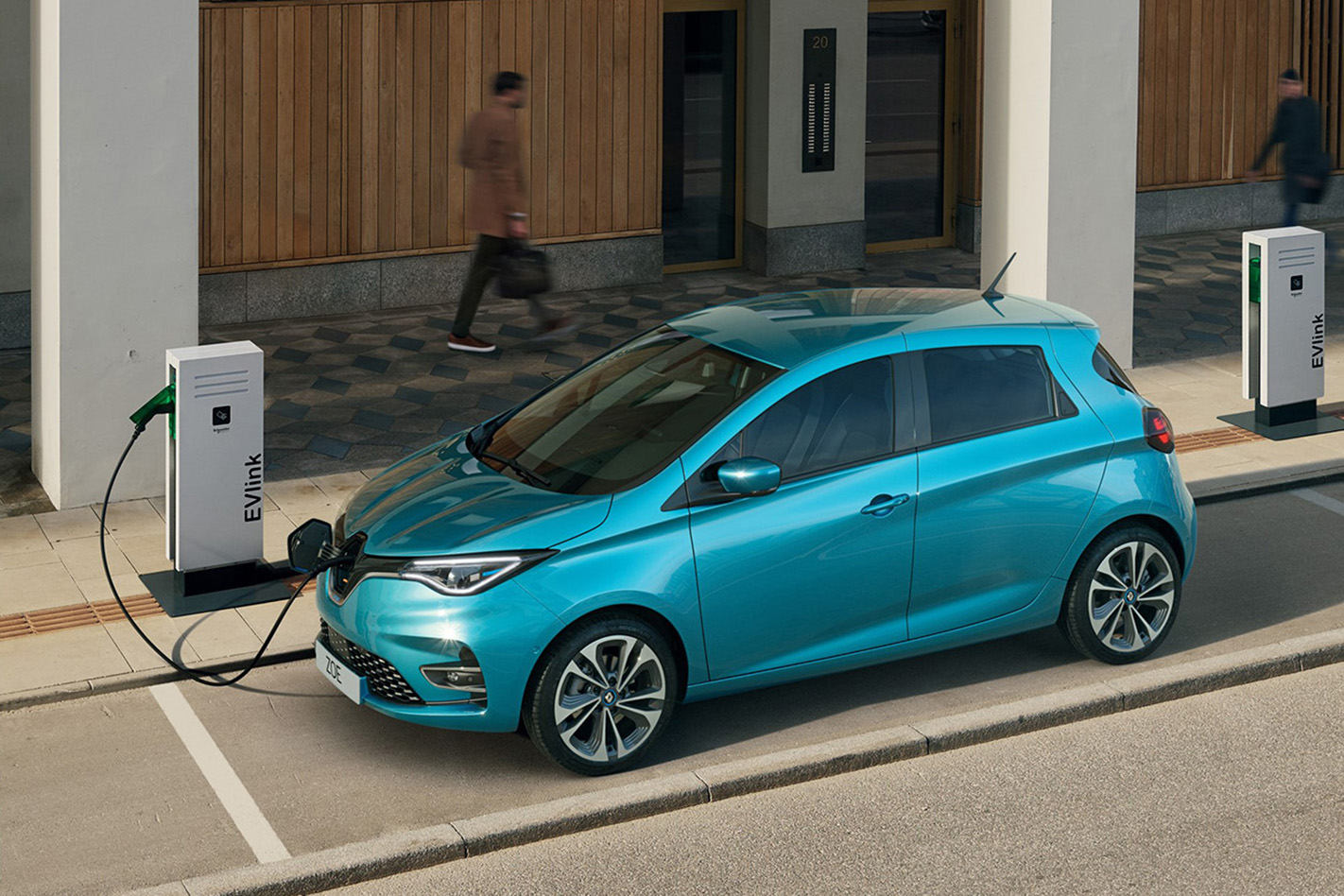
“That triggers the question: what will come after 2040? Ideally around 2050, mobility will be carbon-free – cars, trucks, buses,” he continued.
“Will the future be pure-electric? Yes, but not purely battery-electric. We believe battery-electric will be ideal for small vehicles which will be used in cities with a range of 250-300km would be enough. For long-range vehicles and premium-type vehicles, which are heavier, we believe [hydrogen] fuel-cell will be the technology.”
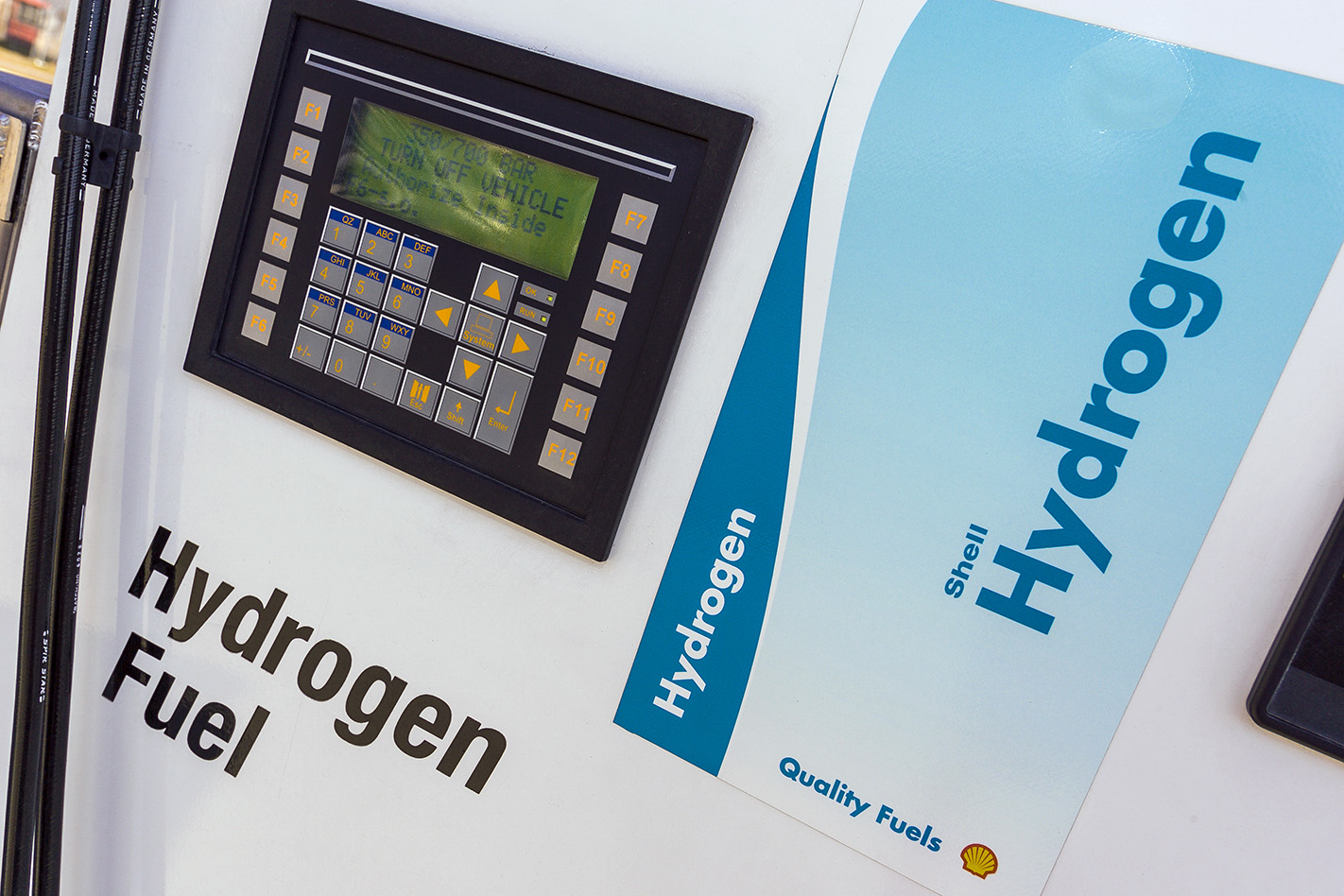
“China, Japan and Korea and now also German manufacturers are starting to re-invest into fuel cell technology intensively again. Continental is looking into this technology and we have a lot of products which we can contribute, but we believe we have to do – and can do – a lot more in the future.”
Dr Degenhart’s vision of a combustion-free future doesn’t entirely align with forecasts by the International Energy Agency, however, which only sees a similar EV and hydrogen-heavy vehicle mix in a scenario where governments and regulators universally make a concerted effort to limit emissions (the graph on the left, shown below).
Even then, the IEA still estimates that nearly a quarter of total car sales around the year 2050 will be for combustion-engined cars, whether they be purely petrol, diesel, or hybrid.
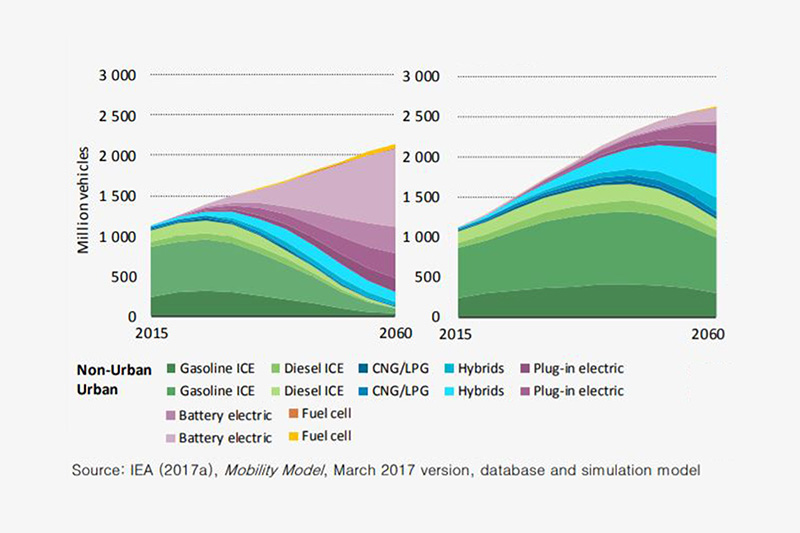
Under the least-optimistic forecast, where policy continues on its present trajectory (right graph, above), the IEA envisages the majority of cars and SUVs sold in the year 2050 will still be traditional petrol and diesel vehicles, with hybrids still eclipsing pure electric cars by a sizable margin. In either scenario, fuel cell vehicles are expected to be a bit player.
But that’s not to say that Continental is being unrealistic. The future has still yet to play out, and the company is aware that transitioning to a greener future will still incur an environmental cost through the need to build new cars and acquire the resources for their batteries -not to mention that its vision of zero transport-related carbon emissions also hinges on similar shifts in power generation infrastructure being made at the same time.
“You can’t bring CO2 emissions to zero, because you need to produce vehicles, and you will produce CO2 [in that process]. So the next step is starting today: the responsibility of manufacturers to get production to be CO2-neutral. Industry is working on such a scenario already.”

